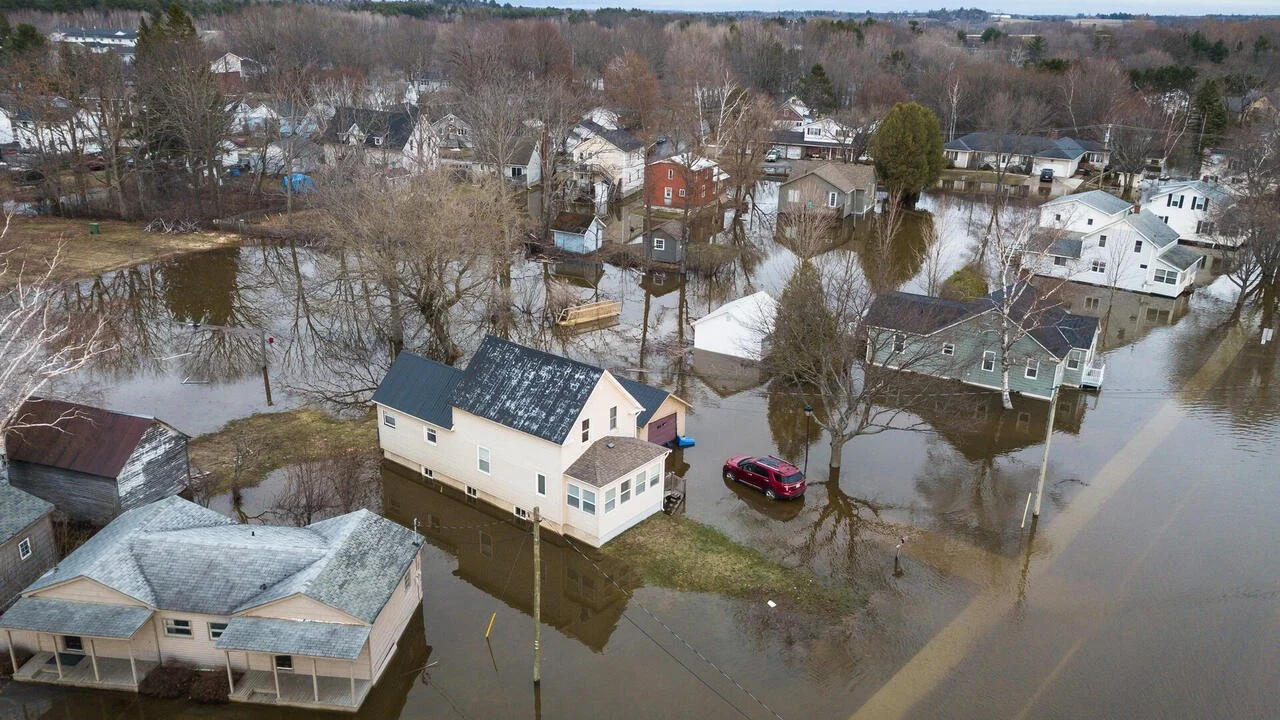With warming temperatures increasing the likelihood of rising water levels, British Columbians are encouraged to prepare for potential spring floods, while the Province, local governments and First Nations work together to keep people and communities safe. High-elevation snowpacks have not yet developed to the point that increased heat will cause significant runoff. At this time, forecasters are not anticipating a flood hazard over this current warming period for rivers lying in higher elevations, including larger rivers such as the Fraser River.
New report turns to nature to limit Canada's costliest climate impact – flooding
The need to limit flood risk in Canada is urgent, with approximately 1.5 million homes, representing 10 per cent of the Canadian residential housing market, in high-risk zones where they are ineligible for flood insurance. A new CSA Group report, authored by the University of Waterloo Intact Centre on Climate Adaptation, provides practical guidance for federal, provincial, local, and Indigenous governments to tackle river flooding.
Changing how we use, consume water
Our most valuable resource is water, which we frequently take for granted. World Water Day is observed on March 22, and this year’s message is about change; it encourages us to change how we use, consume and manage water in our daily lives. There are several steps that homeowners can take to ensure their water is safe for their homes and consumption. I always recommend homeowners get their water tested, no matter where they live, but particularly outside urban centres or if they rely on a well source.
B.C. building stronger communities with $1-billion Growing Communities Fund
“B.C.’s strong economy and natural beauty continue to attract people from across Canada and around the world. Cities and towns need support to build thriving, livable communities,” said Premier David Eby. “The new Growing Communities Fund will help local municipalities improve roads, build more arenas and water facilities, and improve recreation options for families.”
Okanagan water board taking grant applications
The Okanagan Basin Water Board (OBWB) is accepting applications for its 2023 Water Conservation and Quality Improvement (WCQI) grant program. With a funding pool of $350,000, eligible applicants, including local governments and First Nations, irrigation districts and non-profit organizations, can receive grants ranging from $3,000 to $30,000 for water projects within the Okanagan Basin.
Ottawa should help B.C. create better flood relief plan, Senate report finds
A new Senate report is calling on the federal government to work with the provincial and local governments in B.C. to create a better, more comprehensive flood relief plan to protect the Fraser Valley from disastrous flooding in the future. The Standing Senate Committee on Agriculture and Forestry released its findings on Thursday after hearing from nearly two dozen witnesses about the disastrous effects of flooding last November and the support the province offered in the aftermath.
Input wanted to strengthen flood planning, response
With climate change and extreme weather becoming more frequent, people are encouraged to provide feedback about how best to prepare for future flooding in B.C. The Ministry of Forests and Emergency Management BC are releasing an intentions paper focused on specific actions to mitigate flooding, such as the fall 2021 atmospheric river. The intentions paper provides discussion points about improved assessment, decision-making, preparedness and response, and crucial investments to safeguard communities.
B.C. warns of rising drought levels on Vancouver Island
Persistent dry and hot conditions on British Columbia's coast led the provincial government to raise all of Vancouver Island as well as the Haida Gwaii basin to drought level 3 on Saturday. People who live in eastern and western Vancouver Island and Haida Gwaii are being asked to reduce their water consumption wherever possible and to respect watering restrictions issued by local and regional governments, water utility providers or irrigation districts. "The high temperatures, consistent sunshine and lack of recent rain have increased water temperatures in numerous Vancouver Island and Haida Gwaii streams," B.C.'s Ministry of Forests said in a news release.
The Catch: Current issues in Canadian water infrastructure
This month of The Catch features stories from our partners in the Great Lakes News Collaborative. The collaborative’s investigation of the cost of water in the Great Lakes region was the focus of the latest episode. Toronto-based journalist Andrew Reeves discusses a piece he wrote for Great Lakes Now about the history and current issues in Canadian water infrastructure. Similarly to the United States, Canada’s water system saw a substantial drop in funding in the decades after World War II. However, in 2000, when a drinking water tragedy hit the city of Walkerton, Ontario, officials took action and began to invest in infrastructure and safety.
B.C. investment in watershed security offers hope
On Earth Day (April 22), Living Lakes Canada welcomed the Province of B.C.’s commitment of $30 million for projects that will strengthen B.C.’s watershed security. This is a timely announcement given the 2022 Earth Day theme is “Investing in our Planet.” This new funding is an essential step towards the creation of a long-term B.C. Watershed Security Fund, a provincial government commitment that has broad support from Indigenous Nations, local governments, community organizations and businesses.
Projects enhance Okanagan Valley water protection
The Okanagan Basin Water Board (OBWB) marked the 15th year of its water conservation and quality improvement (WCQI) grants this week with the awarding of funds to projects throughout the valley that will enhance water security. Since the program began in 2006, and with this week’s award of 16 grants worth $350,000, the board has now provided 300 grants to Okanagan non-profits, First Nations, local governments and irrigation districts adding up to an overall value of $5.1 million.












